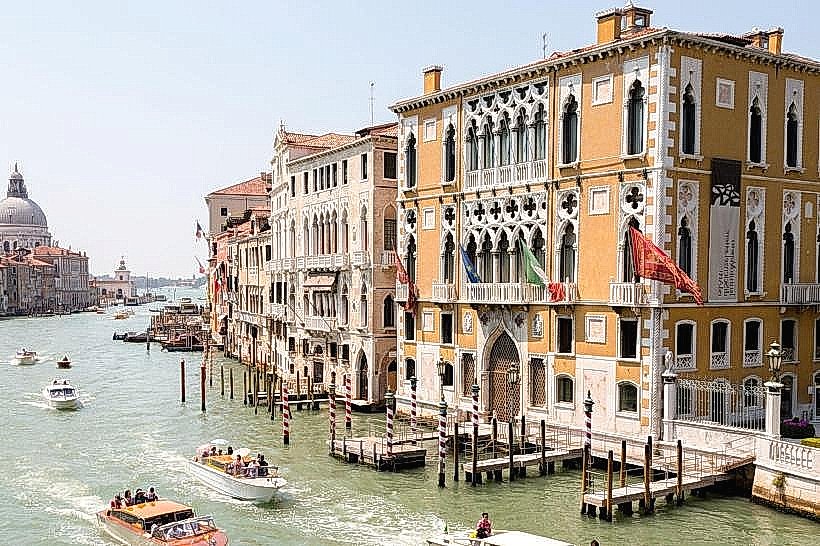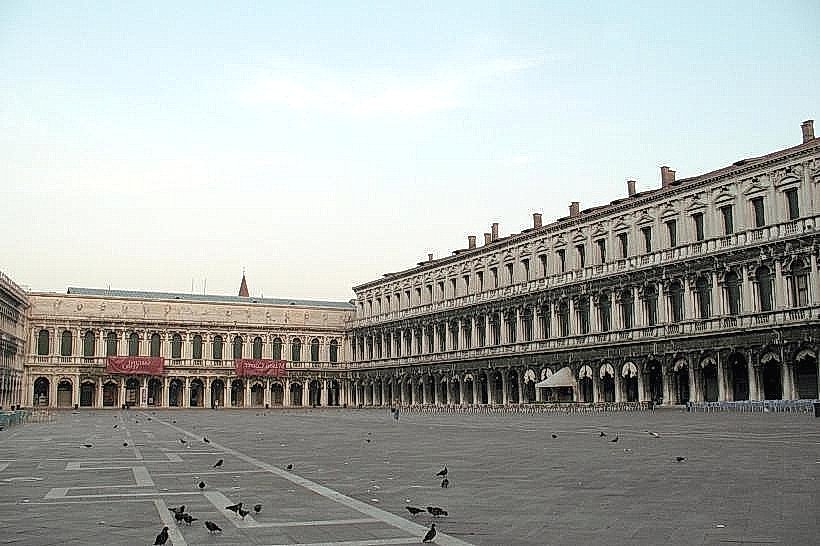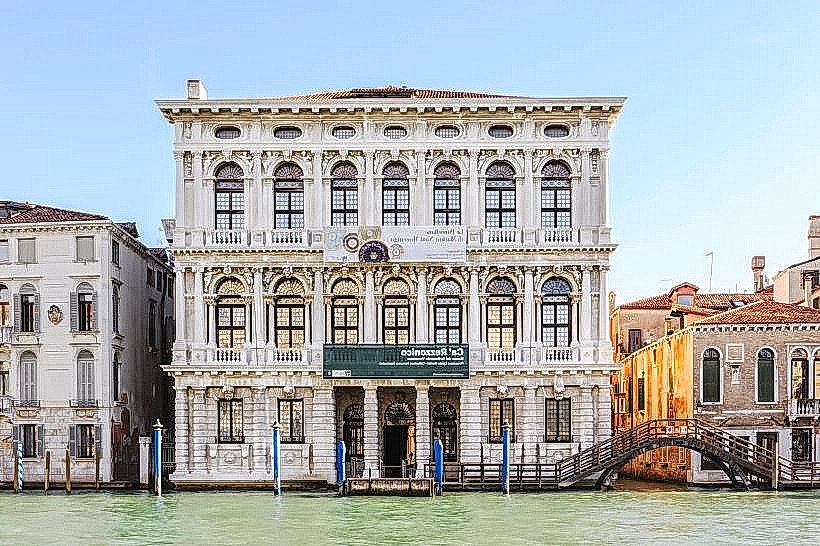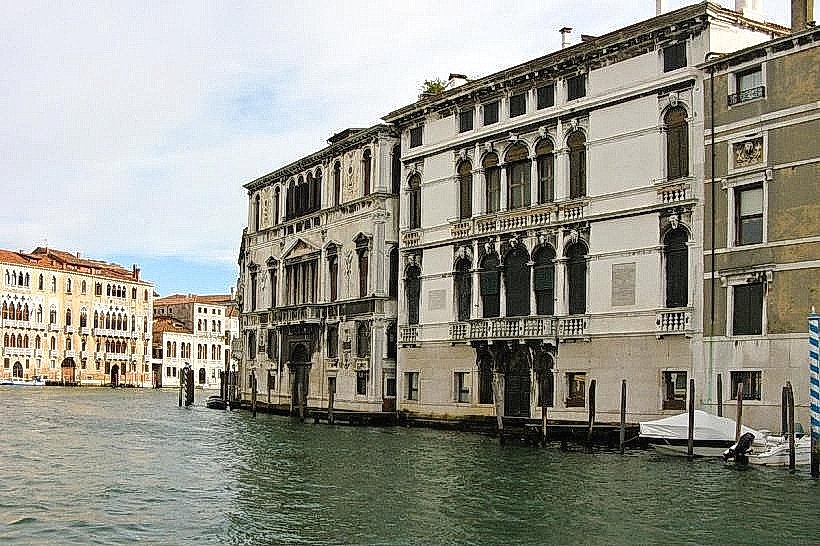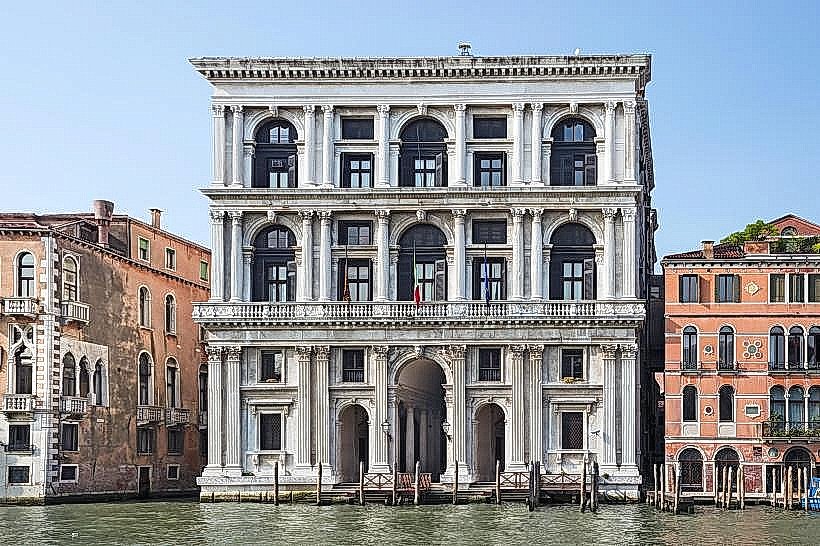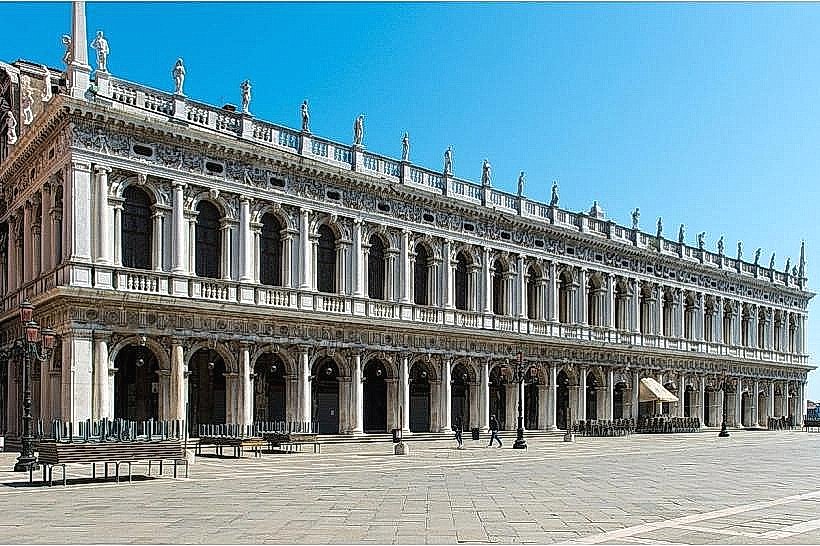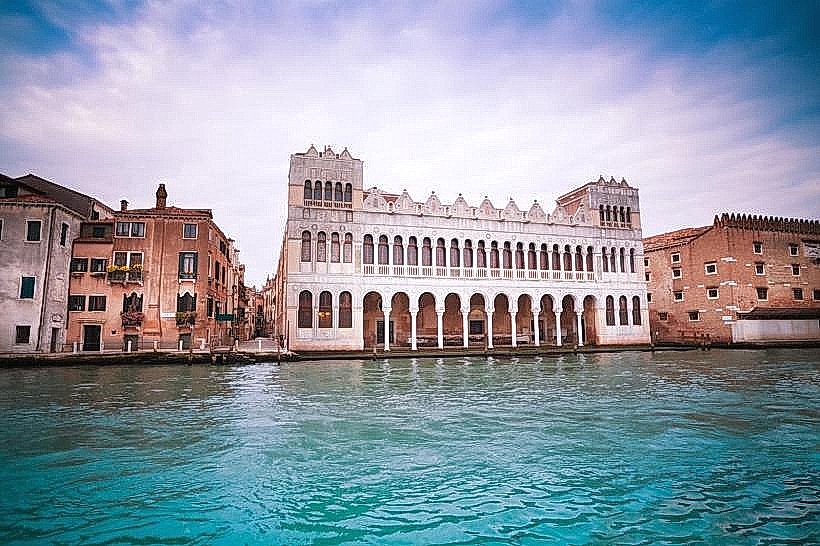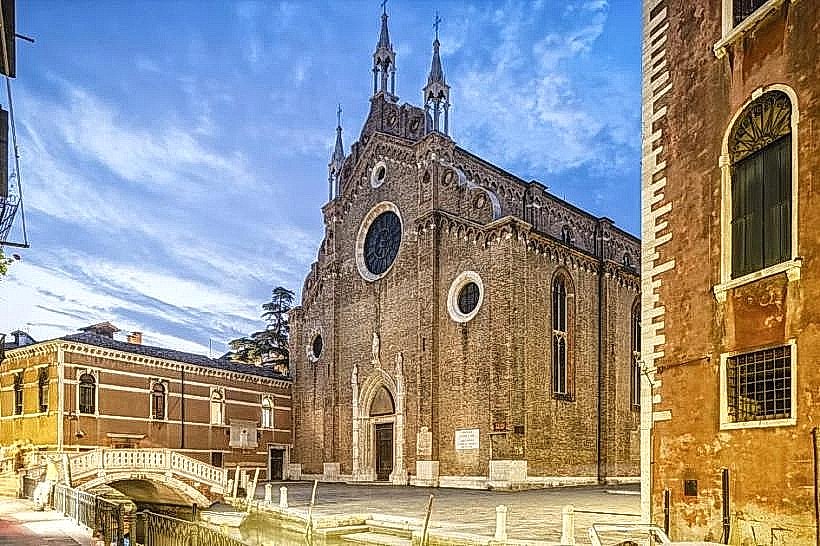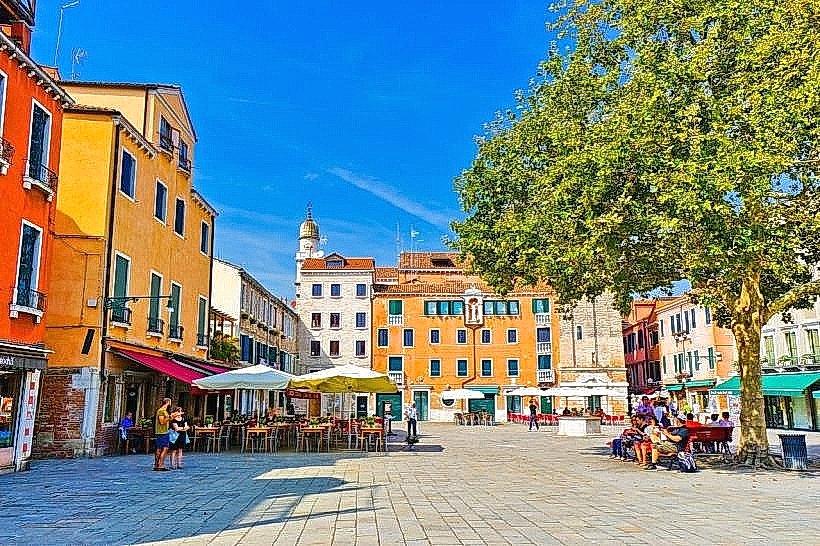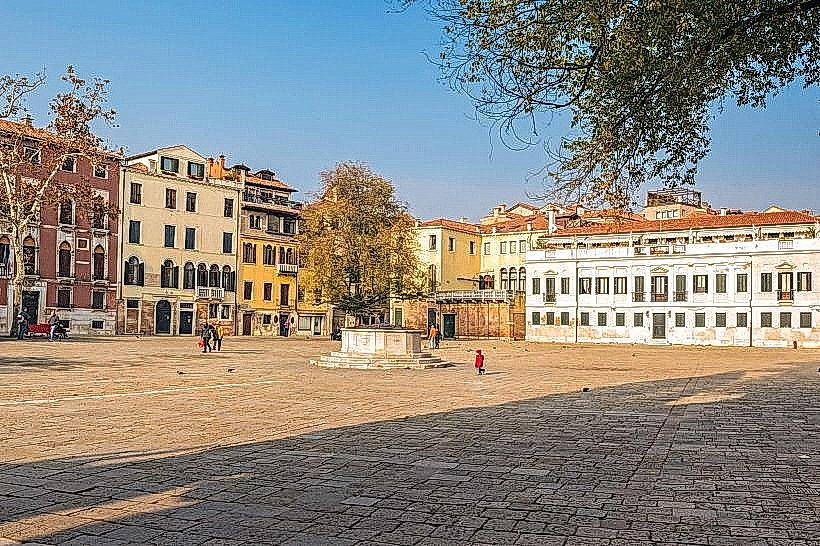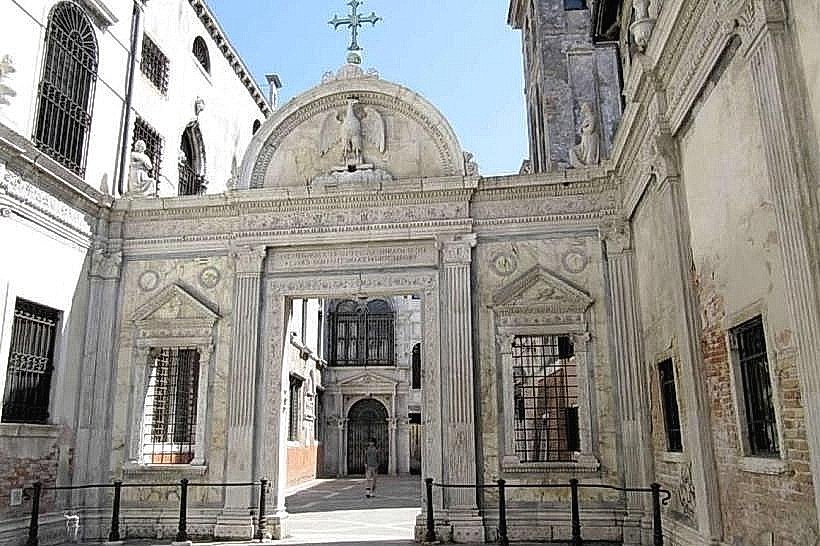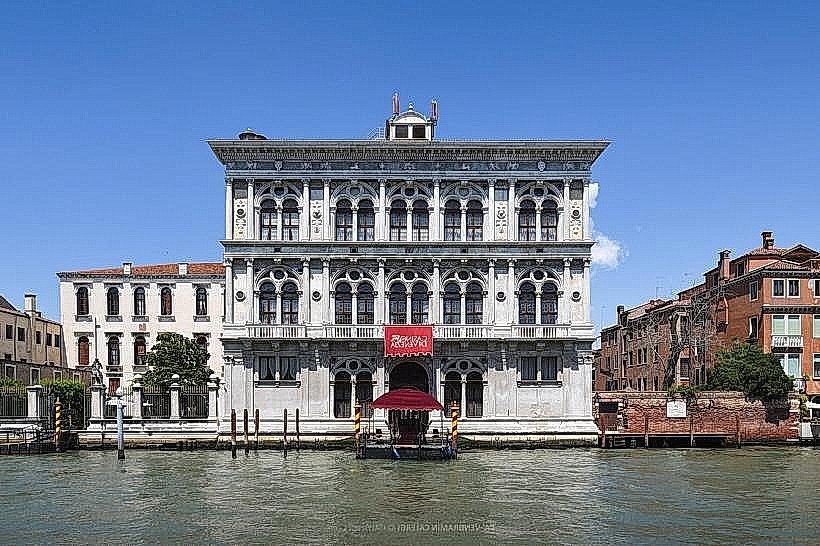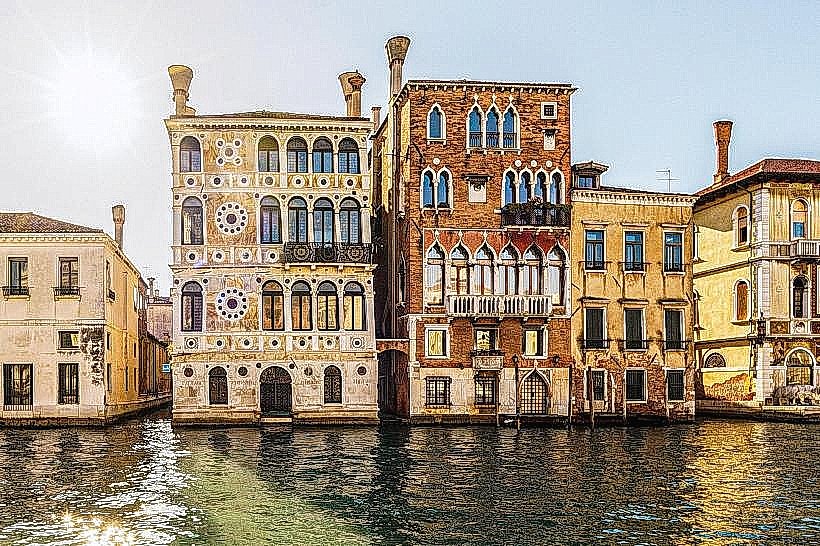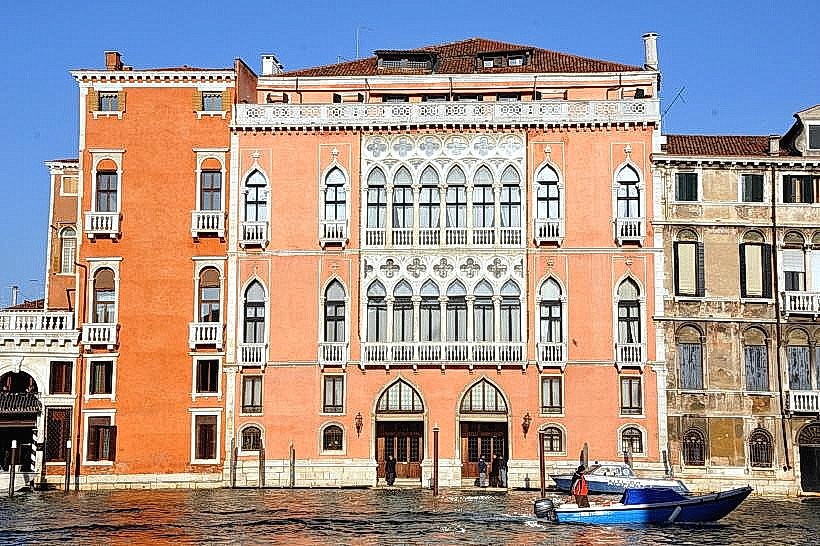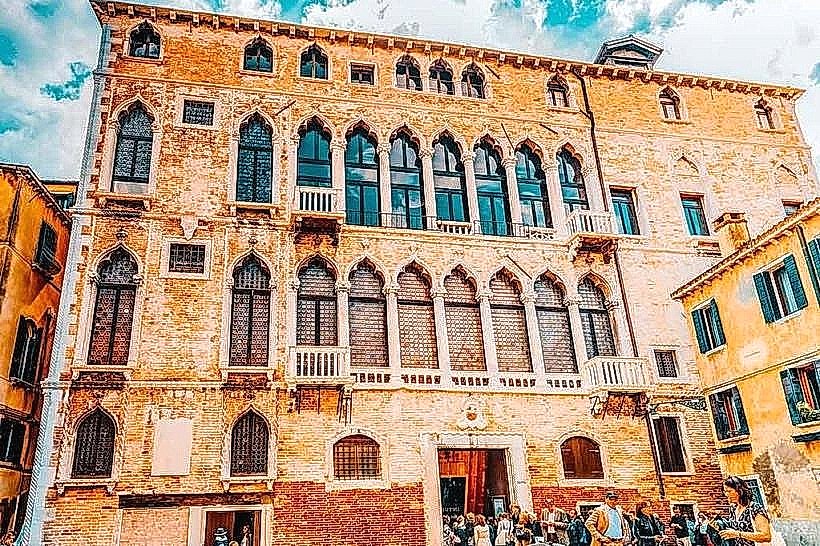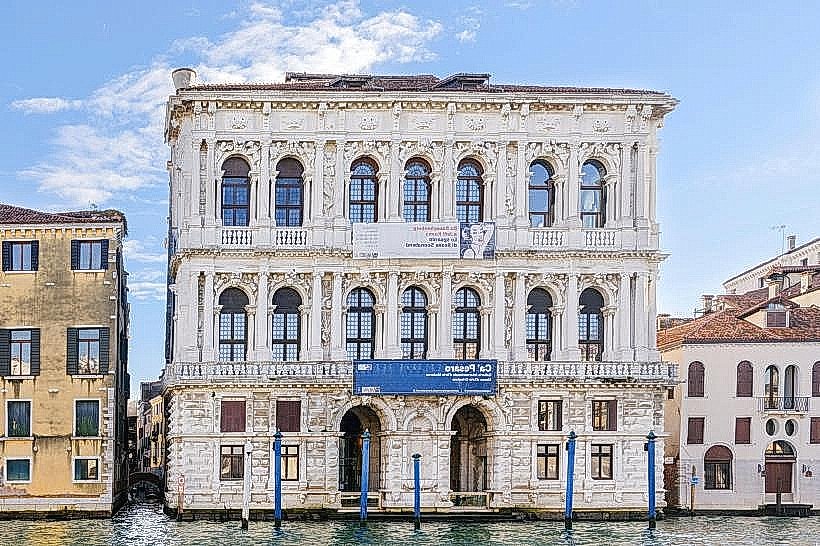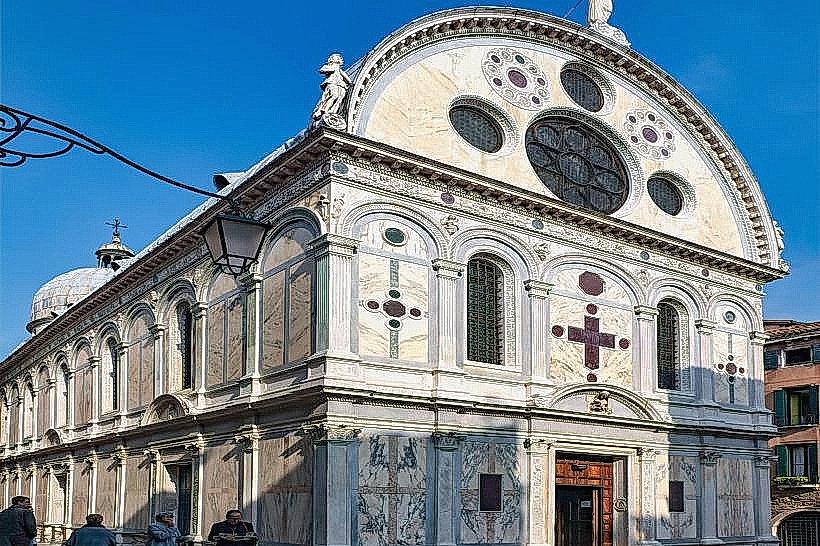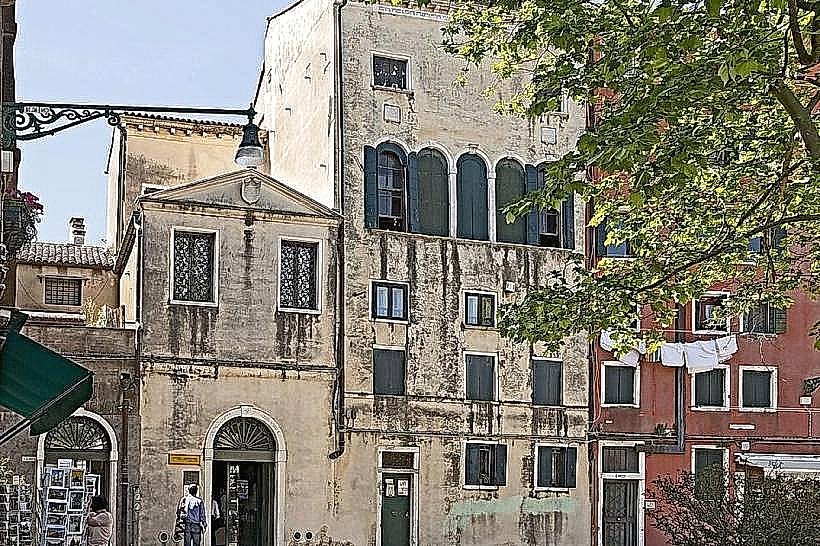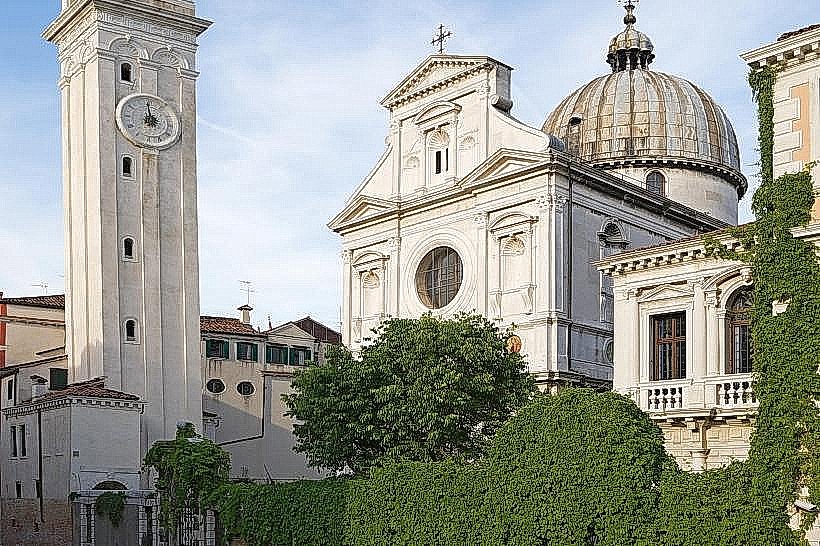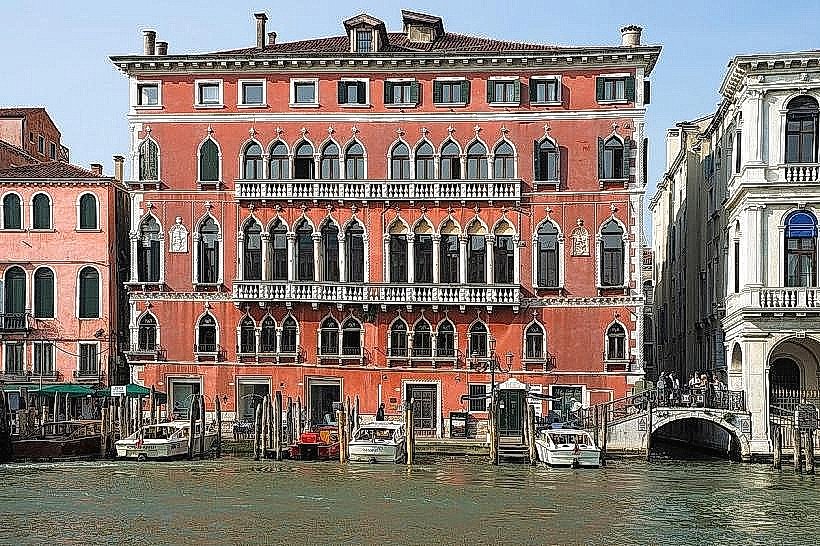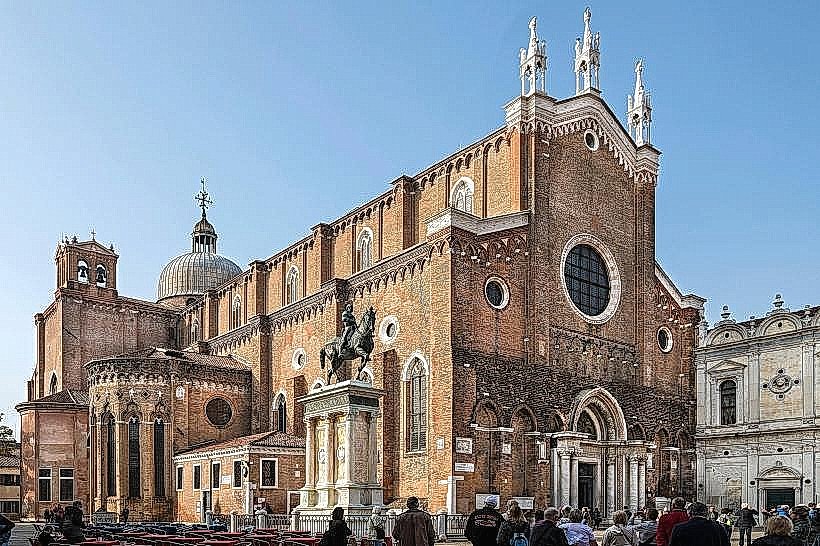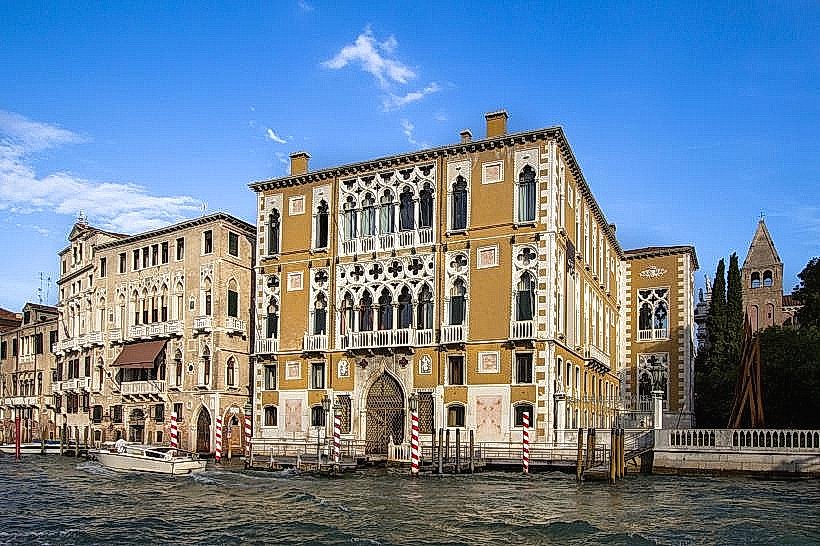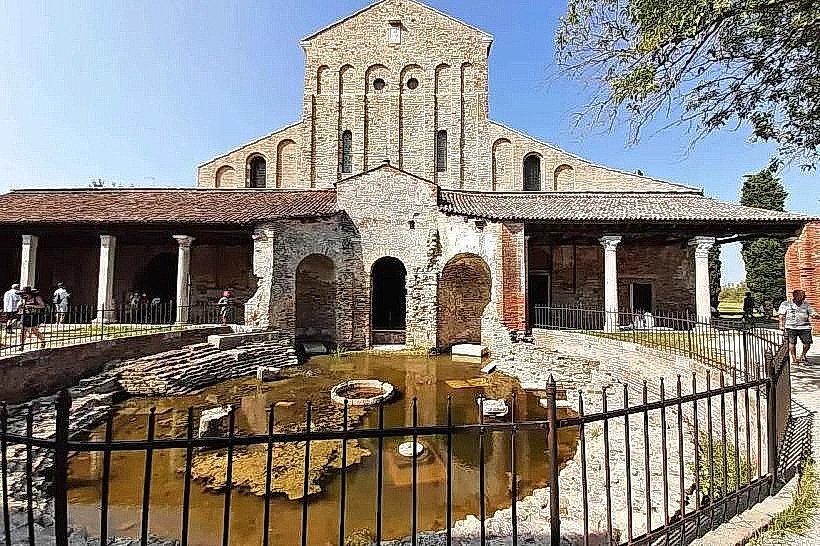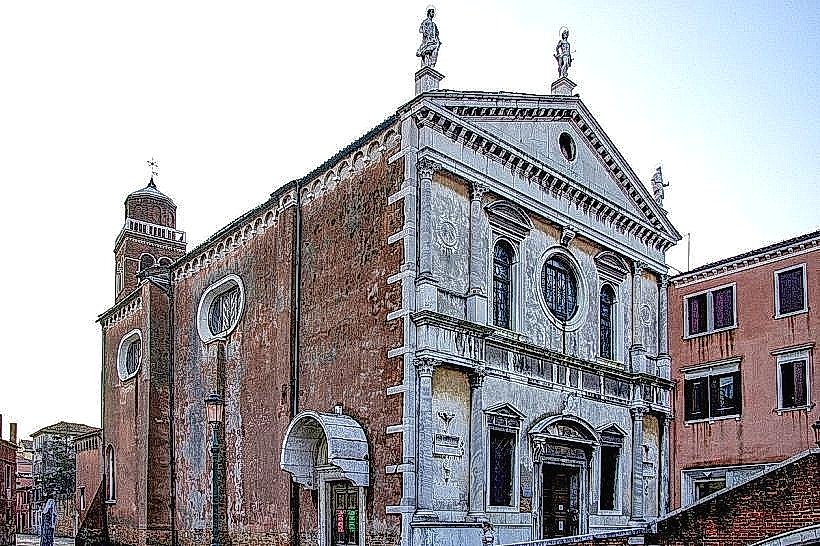Information
Landmark: Church of San Giovanni e Paolo (San Zanipolo)City: Venice
Country: Italy
Continent: Europe
Church of San Giovanni e Paolo (San Zanipolo), Venice, Italy, Europe
Rising solemnly along the eastern edge of Venice’s Campo Santi Giovanni e Paolo, San Zanipolo is one of the city’s largest and most historically significant churches. Often overshadowed by the grandeur of St. Mark’s Basilica, this vast Gothic edifice embodies Venice’s political, artistic, and spiritual ambitions, serving for centuries as the pantheon of the Republic’s doges.
Origins and Construction
Construction began in 1246 by the Dominican order, dedicated to Saints John and Paul, early Christian martyrs of Rome. The building spanned nearly a century, with work continuing into the 15th century, resulting in one of the largest churches in Venice. Its scale and austere brick exterior reflect both the Dominican ideals of simplicity and the ambition of a growing maritime republic.
The church became the preferred burial site for Venice’s doges from the 14th century onward, earning it the nickname “Pantheon of Doges.” Over time, it became not just a religious center but a repository of Venetian memory and civic pride.
Exterior and Architectural Style
San Zanipolo is a striking example of Venetian Gothic architecture, distinguished by its linear, towering brick façade and large pointed arches. Unlike the decorative exuberance of many Venetian churches, the exterior is relatively austere, emphasizing verticality and solidity. Its campanile, added in the 14th century, soars above the surrounding rooftops, acting as both a city landmark and a guide for sailors approaching from the lagoon.
The large rose window and carefully proportioned portals hint at the intricate beauty found inside, where light and space unfold in expansive Gothic rhythm.
Interior and Artistic Highlights
Inside, the church extends more than 100 meters, with soaring vaults, massive columns, and ribbed Gothic arches that give the space a cathedral-like sense of solemnity. The interior is comparatively austere, emphasizing height and proportion, but it houses a treasure trove of Venetian Renaissance and Baroque art:
Tomb of Bartolomeo Colleoni by Andrea del Verrocchio, one of the most renowned equestrian monuments in Europe. The sculpture’s dynamic energy and meticulous detail draw attention from across the nave.
Tombs of numerous doges, each uniquely decorated, featuring marble, bronze, and elaborate reliefs. The tombs of Doges Francesco Foscari and Leonardo Loredan are especially notable.
Paintings by Giambattista Tiepolo, Paolo Veronese, and Tintoretto, whose works imbue the vast interior with narrative drama and luminous color. Tintoretto’s altarpieces, in particular, dramatize biblical scenes with his characteristic boldness and perspective mastery.
The church also contains exquisite stained glass, carved choir stalls, and sculptural details that reward careful observation, especially in the chapels along the side aisles.
Spiritual and Cultural Role
San Zanipolo remains active as a Dominican church, hosting religious ceremonies and local processions, particularly during Feast Days of Saints John and Paul. Its role as a site of doge burials links it intimately to Venetian civic life, blending religious devotion with the politics and prestige of the Republic.
For visitors, the church provides a sense of Venetian scale and history rarely experienced in the smaller, more decorative parish churches. Walking through the nave, one senses the weight of centuries, the interplay of faith and power, and the artistic ambition of a city that projected itself across the Mediterranean.
Atmosphere and Visitor Experience
The atmosphere inside San Zanipolo is solemn yet inviting. Light filters through the tall windows, casting soft illumination over the tombs and paintings. The echo of footsteps on stone floors emphasizes the church’s immense scale, and the gentle scent of incense during mass blends with the cool marble air. It is a space that encourages reflection on Venice’s layered history-from pious devotion to political spectacle.
San Zanipolo is not just a church but a monument to Venice’s identity: a city of power, art, and faith, preserved in brick, marble, and memory.

